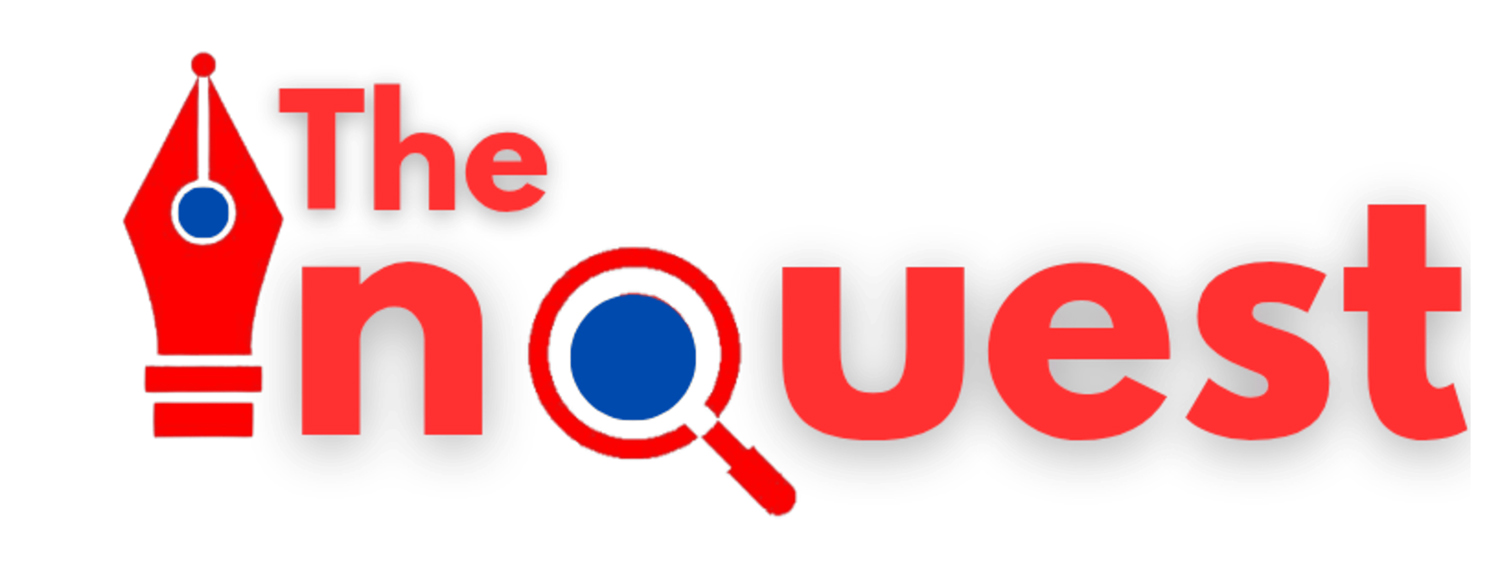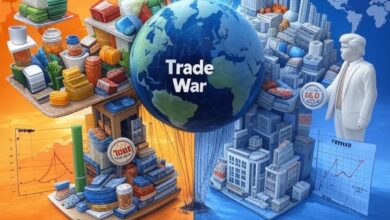India’s Stand Against ‘Non-Veg Milk’ Stalls US Trade Talks: A Cultural and Economic Battle

The Inquest Bureau
July 22, 2025 : In the bustling diplomatic corridors of New Delhi and Washington, a seemingly innocuous commodity—milk—has emerged as a formidable barrier in the India-US Free Trade Agreement (FTA) negotiations. Dubbed “non-veg milk,” the controversy surrounding American dairy imports has ignited a firestorm, blending cultural reverence with economic stakes. As both nations aim to boost bilateral trade to $500 billion by 2030, India’s refusal to accept milk from cows fed animal byproducts has become a “non-negotiable red line,” stalling progress and exposing the complex interplay of faith, tradition, and commerce.
The term “non-veg milk” refers to milk from US dairy cows fed animal-derived products like bone meal, fish meal, or even blood from pigs and horses—a practice documented as early as 2004 by The Seattle Times and confirmed in recent reports. In contrast, Indian cows are traditionally fed a vegetarian diet of grass, grains, and fodder, aligning with the country’s deep-rooted cultural and religious values. For India’s 1.4 billion people, 38% of whom are vegetarian according to a 2023 World Atlas report, milk is not just sustenance but a sacred offering used in Hindu and Jain rituals, from temple pujas to household prayers. “Imagine eating butter made from a cow fed meat and blood,” Ajay Srivastava of the Global Trade Research Institute (GTRI) said in a statement. “India may never allow that.”
India’s Department of Animal Husbandry and Dairying mandates strict veterinary certification for dairy imports, requiring assurance that source animals have not consumed feeds containing meat, blood, or tissues of ruminant or porcine origin (except milk products). This stance, formalized in November 2024 through updated Food Safety and Standards Authority of India (FSSAI) guidelines, proposes labeling dairy from non-vegetarian-fed cows with a “non-veg” symbol—a move that has sparked objections from US dairy giants. The US, the world’s second-largest dairy producer, argues that these requirements are “unnecessary trade barriers” and has escalated the issue to the World Trade Organization (WTO), citing India’s high tariffs—30% on cheese, 40% on butter, and 60% on milk powder—as further obstacles.
The economic stakes are monumental. India, the global leader in milk production with 239.3 million tonnes in 2023-24, employs over 80 million small-scale farmers, contributing 2.5-3% to the national GDP, roughly ₹7.5-9 lakh crore. A State Bank of India (SBI) analysis warns that opening the dairy sector to US imports could slash milk prices by 15%, leading to annual losses of ₹1.03 lakh crore for Indian farmers. “If cheap imports flood the market, our small farmers will be crushed,” said Mahesh Sakunde, a dairy farmer from Maharashtra, echoing the fears of millions.
The US, eyeing India’s $16.8 billion dairy market, is pushing hard for access, especially for products like butter, cheese, and milk powder. With President Donald Trump’s August 1, 2025, deadline looming—after which steep tariffs could hit Indian goods—negotiators are under pressure. Yet, India remains steadfast. A senior government official said, “There is no question of conceding on dairy. That’s a red line.” Recent reports indicate India is open to importing lactose and whey protein, where domestic production lags, but fluid milk and ritual-use products like ghee remain off-limits without vegetarian certification.
Cultural sensitivities are not the only driver. India’s dairy sector, dominated by women (70% of the workforce, per the Ministry of Fisheries, Animal Husbandry, and Dairying), is a cornerstone of rural empowerment. Opening the market risks undermining this, especially as US dairy benefits from significant subsidies, giving it a price edge. Critics argue that the US’s dismissal of India’s concerns as “non-scientific” ignores the cultural weight of milk in a country where cows are revered as sacred.
As of July 2025, talks remain deadlocked. India has proposed a compromise: a certification system ensuring US dairy exports come from cows fed vegetarian diets. However, implementing this could cost the US dairy industry up to $2 billion annually, making it a tough sell. Meanwhile, social media buzz, with posts like @Windsofchange72’s on X, reflects public sentiment: “US dairy giants feed cows pig blood and chicken poop. This violates our Dharma.”
The “non-veg milk” debate is more than a trade spat—it’s a clash of values. India’s stand protects its farmers and cultural ethos, but at the risk of straining ties with a key partner. Will a compromise emerge, or will this sacred cow derail the FTA? For now, India’s dairy farmers and devotees hold their breath, waiting for the next chapter in this global drama.








